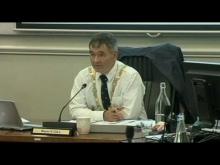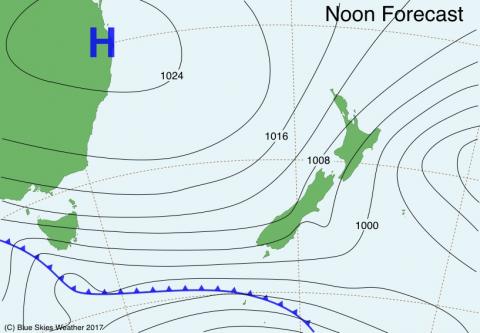-
More
Weather Forecast
- What's On
- Programmes
- Noticeboard
- Tuning
- Services
- DVD Shop
- About
- Home
- Business
Thursday 26th May, 2016
Dairy farmers struggling with the industry's global downturn are getting a restrained payout forecast from Fonterra.
The company just announced its predicted farmgate milk price for the next season of $4.25 per kilogram of milk solids.
That's an increase of 35c on the current season's payout.
But the shareholders' council chairman says the announcement will be tough for farmers to hear.
He says it reflects the reality of the market, and Fonterra's also citing industry limitations for the figure.
Monday 23rd May, 2016
Forestry exports are returning higher profits but there is scepticism in the industry about whether current values will continue.
The average wharf gate price for A-grade New Zealand logs has increased to $120 a tonne.
Inventory levels on Chinese ports remain moderate, with China New Zealand's largest forestry export market.
Some in the industry believe its stability will continue, but others are more pessimistic and think current returns are too high to be maintained in the long run.
Tuesday 17th May, 2016
Farm sales are dropping off although in most cases the price per hectare is increasing.
Nationally there has been a 16% drop in farm sales over the last year.
But the median price per hectare has risen to around $30,000 overall.
Dairy is bucking that trend with values falling 13.6% in the last 12 months.
In Otago there's steady activity in finishing and grazing properties but a cautious buyer approach seems to be slowing sales.
Monday 16th May, 2016
Thumb not available yet
Business events held in the city are contributing about $50m to the economy each year.
Data on the growing sector is being collated by the Dunedin City Council's Enterprise Dunedin team.
And staff believe they can generate even more income from the corporate world.
Monday 16th May, 2016
Fonterra is releasing some money to dairy farmers earlier than usual, to help those struggling with the industry's downturn.
A dividend of 10c per share is being paid on the 7th of June, to be followed by an equal payout in August.
But that's subject to financial performance continuing at the current level.
The company's forecasting a 3% reduction in seasonal milk collection overall.
This year's payout is set to be 40c per share in total.
Thursday 12th May, 2016

Local ratepayers are facing a 2.97%increase in civic fees for the next financial year.
The Dunedin City Council completed deliberations on its annual plan earlier today, following extensive community consultation and discussion.
Councillors finally settled on spending which keeps the rates increase below 3%.
They're utilising a million dollars of money which had been earmarked for cricket pitch lights.
Just over $150,000 was also shaved off budgets from the draft annual plan.
A hearing for the council's second generation district plan also began today.
Thursday 12th May, 2016
The median house price in Otago has reached a record high, up $24,000 compared to a year ago.
It's a 9% jump overall and in Dunedin properties are also selling for that much more.
Compared to last April sales volumes are up by 35% across the region and 37% in Dunedin.
There were 254 houses sold in the city last month.
The average price was $315,000.
Friday 06th May, 2016
South Dunedin is leading the city's increase in house values.
Residential properties in the suburb are worth 10.9% more than a year ago, averaging $306,000.
But while the value of South Dunedin homes has increased the most, they're still worth less than properties in other parts of the city.
Taieri houses are the most valuable with an average of just under $330,000, followed closely by those in central and northern suburbs.
Overall the city's residential properties have increased in worth by 9% in the last year.
Thursday 05th May, 2016
New data confirms it's a seller's market in Otago, with a higher number of properties being bought for more money and in less time.
Otago has 384 new listings for this month, showing a 16.7% increase on a year ago.
The local inventory is 13 weeks which is how long it would theoretically take to clear all unsold properties on the market without any new listings.
That's slightly less than the national average of 14 weeks, and half the region's long term average of six and a half months.
The median selling price in the region is just over $320,000.
Wednesday 04th May, 2016
Thumb not available yet
More than 400 first home buyers in Dunedin have used a new government assistance initiative in its first year.
There have been 413 locals who've accessed grants through the HomeStart scheme since it was launched last April.
It replaces the KiwiSaver First Home Deposit Subsidy.
Eligible buyers can apply for up to $10,000 for a deposit on an existing home and twice that amount for a new build.
Locally $2.3m in grants has been allocated.
Nationwide almost 12,000 people have received a total of $55.6m.

